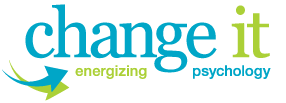According to the evidence Ratey has collected, “exercise is the single most powerful tool you have to optimise your brain function.”
A seminal study was published in 1999 in the journal Archives of Internal Medicine, in which depressed individuals age 50 and over were split randomly into three groups and treated for four months.
The first group did aerobic exercise (45 minutes of cycling, walking/jogging at moderate to high intensity); the second group took antidepressant medication, and the third group had a combination of medication and exercise.
At the end of the four month trial, all groups had their depression lift and reported fewer problematic attitudes, increased happiness and self esteem. Aerobic exercise was as effective as the antidepressants or the combination treatment. Six months later, patients in the exercise group were less likely to relapse than if they were in the medication group.
In her book The How of Happiness, Sonja Lyumbomirsky provides three reasons why exercise increases happiness.
Firstly, it increases self esteem by building mastery over time: you might notice you can walk for longer, your breathing is less laboured, you experience increased flexibility or strength. Secondly, there is the potential for flow where you are immersed in the activity, not even noticing you are exercising, and thirdly it provides opportunities for social contact.
When you’re depressed or anxious, the last thing you want to do is exercise. I had one client who said he couldn’t go to the gym because he was depressed. His assumption was that he was going to have to wait for happiness to come upon him before becoming active.
While it’s quite hard for someone who is already feeling terrible to make an effort to move, I suggest to people that they don’t have to like it; it’s about doing it over and over. This will ultimately make a difference, and make them feel better about themselves than lying on the couch will.
Finally, ritualising an activity makes it a habit; for example, no-one I know finds it too difficult to brush their teeth in the morning, it’s just something they do after breakfast and before heading out the door.
In the February 2010 edition of the Journal of Sport and Exercise Psychology it was found that some properties of physical activity may have an automatic component and that habits may be important to physical activity.


